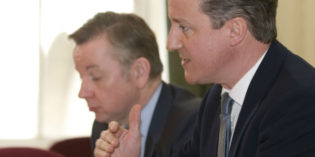Ukip

A tale of two referendums, but similar Remainers: 1975 and 2016
The British public has voted on membership of the EU on two occasions. In 1975, based on a turnout of 64 per cent, two-thirds voted to stay in the EEC, cementing Britain’s place for the next four decades. In 2016, on a turnout of 72 per cent, 52 per cent of the public voted to […]

Book reviews | A Brexit summer reading round-up
Have you been struggling to keep up with all the new books on Brexit? Were you secretly planning to spend your summer holiday catching up on some of them? OK – perhaps not. Nonetheless, Tim Oliver has rounded up some of the best books about Brexit published since the referendum. Similar PostsBook review | Guilty Men – […]

A return to two-party politics? Don’t believe it
The snap election may have seen the biggest combined vote between the two main parties since 1970, but this is not the result of lost voters returning to their political homes, writes Darren Hughes. On the contrary, it is the outcome of 21st century voting patterns playing out within a broken 19th century voting system. Similar PostsGeneral election 2019: […]

The “empty centre”: how voters’ views have polarised since 2015
Following up from his 2015 analysis on the economic and cultural positions of party supporters in England, Jonathan Wheatley uses 2017 data and finds that party supporters have become far more polarised – leaving a gap in the middle, occupied possibly by large numbers of undecided voters. It is this ’empty centre’ on the economic […]

How UKIP’s election strategy is boosting Theresa May’s chances of a big majority
In the aftermath of the 2016 Brexit vote, UKIP seems to have lost much of its original purpose and is unlikely to repeat its 2015 vote share at the 2017 General Election. But, Ron Johnston, Charles Pattie and David Rossiter argue, it may yet have an important – if indirect – impact on the election […]

How the Eurosceptics brought down David Cameron: a serious case of supplier lock-in
David Cameron’s decision to call a referendum on the EU was the result of intense Eurosceptic pressures from both within and outside his party. He found himself with little scope for manoeuvre as Ukip gained support and his backbenchers threatened rebellion. Pascal D König looks at what a competition theory usually applied to business can reveal […]

The case of the missing marginals: how big will May’s majority be?
A little-reported result of the 2015 general election was a substantial reduction in the number of marginal seats, and a consequent increase in the number of very safe ones for both the Conservatives and Labour. Ron Johnston, Charles Pattie and David Rossiter explore the implications of those changes for the forthcoming election. Will May get […]

Politicians haven’t been honest with the public about immigration. They still aren’t
The populist surge that helped propel Brexit isn’t going to help the UK take control of its borders, writes Tim Bale. Neither Labour nor the Conservatives have been honest with voters about immigration policy, and that shows little signs of changing after a hard Brexit. The gap between rhetoric and reality has given politicians the opportunity to […]

The Labour party, Momentum and the problem with intra-party democracy
The Momentum movement and the rise in Labour membership are, Jeremy Corbyn’s supporters argue, proof that the party is returning to its roots and embracing ordinary people’s concerns. But political scientists tend to be sceptical about intra-party democracy, because party members are usually more radical than the average voter. Fabio Wolkenstein says claims that Labour has […]



 Democratic Audit's core funding is provided by the Joseph Rowntree Charitable Trust. Additional funding is provided by the London School of Economics.
Democratic Audit's core funding is provided by the Joseph Rowntree Charitable Trust. Additional funding is provided by the London School of Economics.